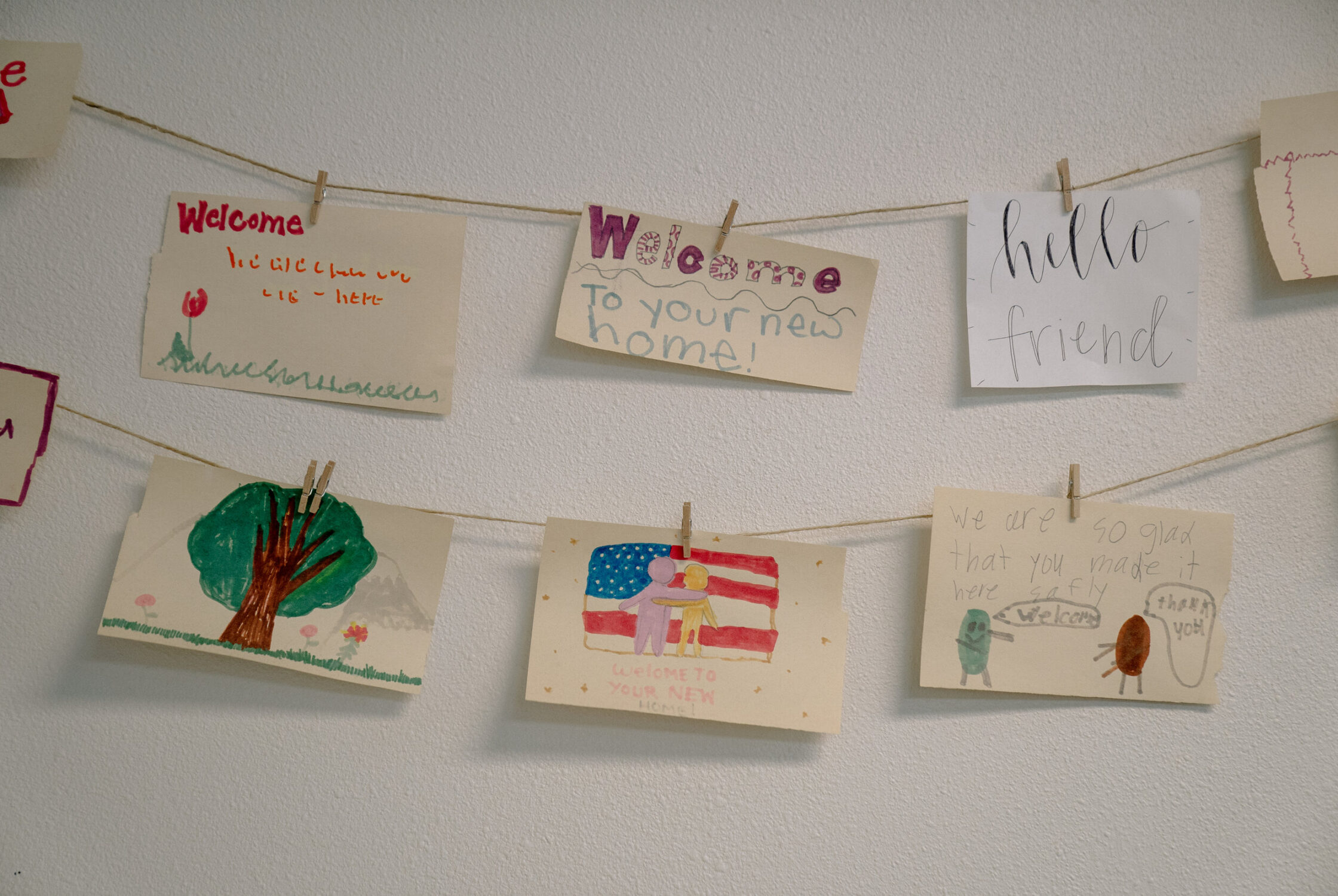We’re Welcoming Refugees! A How-To Guide for Talking to Your Neighbors About Refugees

What’s Happening?
According to the UN, there are more than 26 million people who are refugees worldwide living in vulnerable situations and in urgent need of assistance. Even though the need is great, less than one percent will be considered for resettlement. And of course, resettlement offers the prospect of a better life—an education, a career, and all what so many of us take for granted.
The U.S. refugee resettlement program historically offered some of these individuals a chance to restart their lives. But the program was gutted by the previous U.S. administration. And global resettlement numbers are at an all time low.
This year, President Biden committed to welcoming more refugees to our communities.
What Does it Mean?
Not everyone understands what it means to be a refugee, what it means to resettle to the United States, or what happens next when we welcome refugees in our communities.
Do you have friends or neighbors who want to know more?
Here’s how you can help answer their questions.
1. Who is a refugee?
A refugee is a person who has been forced to flee their country because of persecution, war or violence. They cannot return home or they are afraid to do so.
When refugees resettle here, they become our neighbors. They are hardworking students, small business owners, and dedicated community members who give back to our country and enrich our communities.
2. How are refugees resettled to the United States?
The United States is one of many countries around the world that resettle refugees.
Before refugees resettle in the United States, they go through a rigorous vetting process which includes health screenings, extensive background checks, and multiple interviews conducted by several U.S. government agencies before refugees even arrive.
While this process usually takes 18 to 24 months, many individual cases can take much longer. During this time, many refugees are waiting in refugee camps for resettlement, often separated from family for months or years at a time.
3. What happens next?
When refugees arrive in the United States, they are welcomed by a local branch of one of the nine resettlement agencies, as well as community volunteers.
Once refugees resettle into their new homes, they become our neighbors, our friends, and active community members. They go on to open businesses, enroll in universities, and fill workforce gaps across the country in many industries like healthcare and manufacturing.
Our refugee neighbors give back. A study from the U.S. Department of Health and Human Services showed that from 2005 to 2014, refugees contributed $63 billion more in taxes than the cost of support they received as they settled into their new lives. During the COVID pandemic, an estimated 70% of resettled refugees in the United States were essential workers helping during the COVID crisis.
4. Why is refugee resettlement so important?
Refugee resettlement strengthens our national security and moral leadership in the world. Our long history of being a beacon of hope and safety for people around the world, including refugees and asylum seekers, is essential to who we are as a nation. Just think about the Statue of Liberty.
People fleeing persecution and violence in their countries are in need of a safe place to land. Resettlement facilitates global cooperation and encourages other countries to keep their doors open to refugees, which helps to create a more welcoming world.
5. What can you do to help?
In addition to talking to your friends, family, and neighbors about refugees, you can become part of the resettlement process by welcoming newly arrived families and helping them navigate their new community. Lending a helping hand can range from donating clothes or food to accompanying your new neighbors on trips to the grocery store.
Acts of kindness large and small go a long way in restoring welcome in the United States.
To find volunteer opportunities with organizations in your area, check out Refugee Council USA’s Volunteer Opportunity map!
PHOTO CAPTION: Welcoming postcards made by children for newly-arrived refugees hang on a wall at non-profit resettlement organization World Relief Seattle in Kent, Washington. (Photo by Jovelle Tamayo/For The Washington Post via Getty Images)